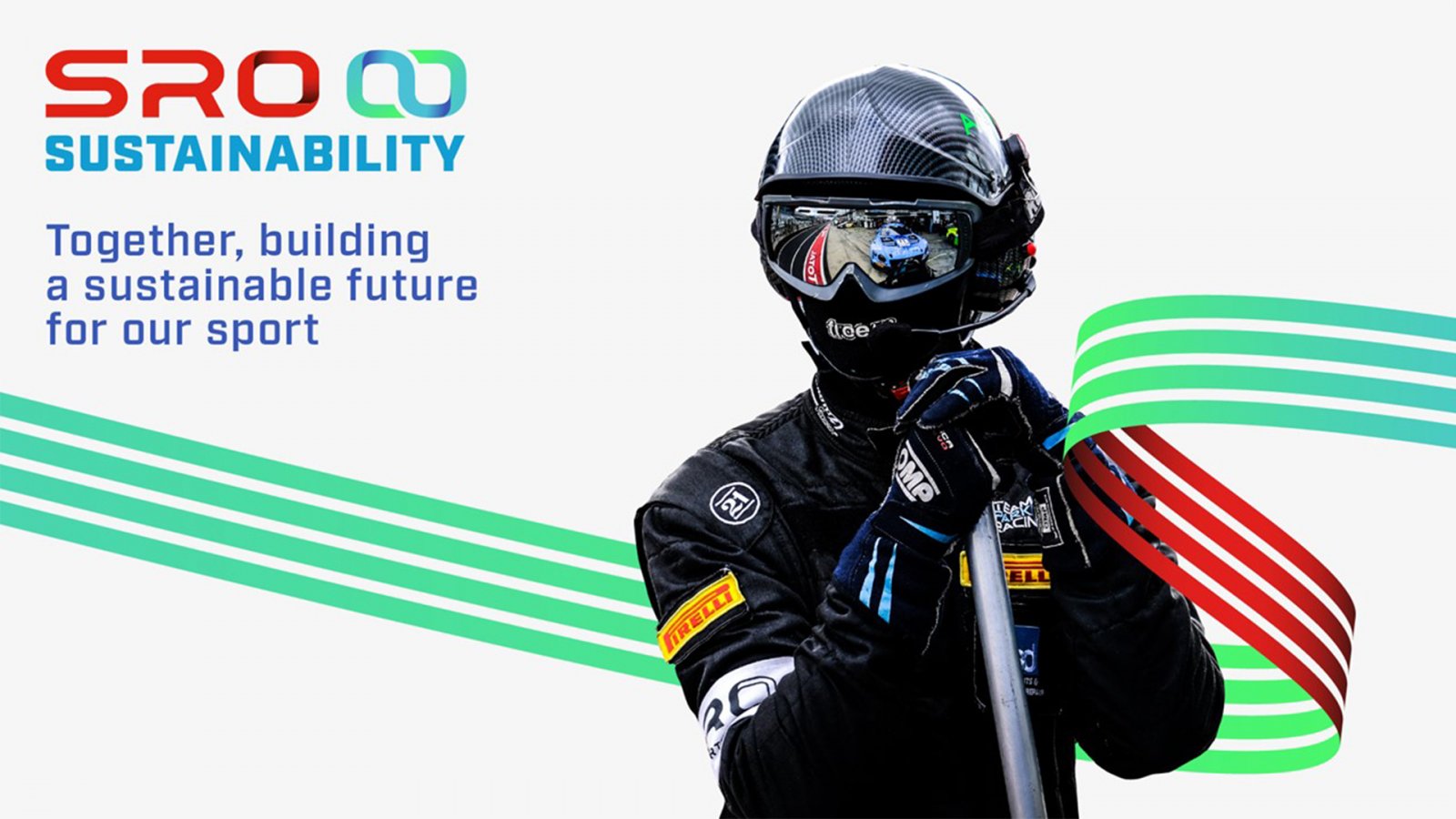SRO Motorsports Group has revealed full details of its 2030 sustainability strategy, drawing on a year-long programme that assessed the company's carbon footprint and identified key areas for improvement.
From the use of renewable energies to reducing and recycling waste, the comprehensive plan establishes environmental protection as a crucial aspect of SRO's everyday operations. The company will work with its key stakeholders to build a sustainable future for motorsport, while diversity and inclusion also feature highly on its list of priorities.
The news comes at an appropriate time, with world leaders currently meeting in Glasgow for the COP26 United Nations Climate Change Conference. At this crucial moment SRO has taken the opportunity to launch a sustainability strategy that is built around three central pillars: events, teams, and partners.
Events
Throughout the 2022 season, the most visible example of SRO's environmental action will be seen during race weekends. Working with circuits and suppliers across the globe, the organisation will minimise waste and maximise recycling. This will include the target of eliminating single-use plastic from paddocks, an effort that began this year when single-use plastic bottles were phased out and replaced by reusable drinking flasks for SRO Staff.
Similar policies will be encouraged in catering, while SRO has also provided guidance to teams and circuits on single-use plastic removal and recycling. What's more, the company will make sustainable promotional items a priority in 2022. This will require the use of lowest-impact resources for merchandising, branding materials and uniforms, thereby reducing waste while supporting recycling.
Teams
The teams that participate in its series are the biggest driving force for SRO Motorsports Group and represent the second central pillar in the company's sustainability strategy. Competitors will be empowered to go carbon neutral through decarbonisation guidance and online carbon calculator tool, while SRO will continue to provide carbon compensation services through avoided deforestation.
A more varied racing portfolio will also support the carbon neutral teams programme. To this end, SRO will launch its GT Experimental events in 2022, creating an alternative series that demonstrates the capabilities of electric and hydrogen GT racing. Moreover, the organisation will encourage diverse teams and paddocks that include members from underrepresented backgrounds. Esports will continue to identify and support drivers from a wider talent pool, while plans are underway to create driver and engineer programmes aimed at gender and nationality diversity.
Partners
The third pillar of the 2030 strategy will create partnerships that deliver zero carbon fuels and sustainable tyres. SRO will work with innovators to ensure that its fuel delivers the necessary power with 60 percent lower CO2 emissions by 2023, culminating in zero CO2 by 2030. This process will begin with the upcoming 2022 tender, which requires second-generation biofuel derived from waste materials or synthetic technologies.
Sustainable tyre design will also become a priority. This will focus on achieving 100 percent collection and recovery of used tyres from the start of the 2022 season, followed by used tyre upcycling in 2024. Alongside these efforts, there will be an ongoing push for more sustainable and longer-lasting tyres.
By concluding the 2021 season with a far-reaching sustainability strategy, SRO Motorsports Group has mapped an ambitious path for the years ahead. In doing so, it will seek to create a better future for motorsport while making its contribution towards global climate protection.

